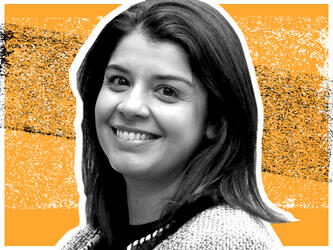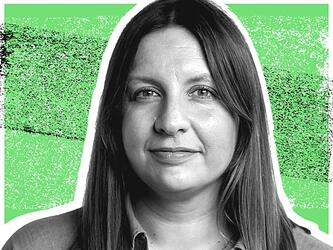Next generation chat with Joshua Proctor: ‘What we do is about niches and untold stories’

What does an average day look like for you?
There are no average days. I think the ‘average’ day is the enemy of a ‘breakthrough’ day. You have days where you feel like you are going over the same things over and over again, but actually that means you’re working towards a breakthrough day.
In terms of the actual work and what we do, it is working together with colleagues to interrogate challenges. We spend a lot of time with our brief, interrogating what the central question is – often I think the big thing is what’s the question behind the question. When we get through that process and get out into the field, we speak with as many people as possible – that’s the best part of the job, getting to interview people and getting to hear how their lives are.
How do you maintain work-life balance in your role?
The biggest thing for me is genuinely loving what you do. There’s always going to be some projects that give you more energy than others, but the main thing is that the overall field you are in is something that fundamentally gives you energy. When you’re in the research industry, it is about uncovering things, it is about learning and about gaining energy from going through that process. That’s the more philosophical side of things.
On the more practical side of things, go outside, touch grass and take a moment to look in awe at the world. You forget how easy it is to fall into the trap of moving through the motions – the world is really cool sometimes, even when it is cold, grey and freezing in London. Enjoy it. Getting in that headspace and flipping the mindset a little bit is what helps with work.
Sometimes we’re tackling really big questions, but ultimately, the best answers come from being aware of the world around you and taking yourself out of a world that is super pressurised and super all-encompassing. You have to go outside, touch grass and look at the sky and realise there’s bigger things going on.
What three words would you use to describe yourself?
‘I really care’. I think that is how I’ve approached work for a long time – I genuinely just care. That comes through in everything I do – I have a genuine passion, love and curiosity for finding things out. I think that sums up a lot of what makes me tick.
What advice would you give to your younger self?
I wish I could say that all of a sudden I’m wiser or know so much more about the world than when I was younger. I think at the core of it, if I was giving advice to anyone [it would be to] keep learning, keep exploring, keep experimenting and keep trying things. There’s so much pressure on 20 and 21-year-olds to land their dream job and to be doing the thing they are going to be doing for the rest of their lives.
The best advice I would give myself now is that the process is never finished. I studied politics at undergrad, and I remember my classmates were going off to do law internships, working in the UN or banking, but I didn’t want to do that and the pressure played on me. What no one ever told me was to experiment, try something new or completely different, keep doing it, keep trying and keep pushing at it and you’ll find something. That pressures comes off when you have that attitude.
How do you think your background has helped your career?
Having a humanities degree was really helpful. It took me a few years into my degree to figure out which part I really loved and was interested in. One of the things that ended up combining with my studies and really helped me was that from the age of 14 to 24 [was that] I would wake up every morning, open my laptop and I would read the same six websites or blogs. Reading, learning and seeing how people write about stuff really helped me.
Three years in, something clicked and I was able to bring all those things I was reading constantly into how I saw the world of politics. That lens has really helped me in my career.
What advice would you share with those looking to break into research?
Reads lots. Read theory. Read things that are incredibly boring sometimes. Reading in-depth, setting aside that time – there’s so much out there we can learn from things that have already been produced and written about. It is such a great window into how you see the world and what you’re inspired by. How you read is how you write, is how you talk, is how you present and how you navigate with other people.
What advice would you offer to those at later stages of their careers?
I would say that when it comes to speaking to, researching with or trying to understand young people, and especially teenagers, move beyond the tropes that get bandied around. Young people are incredibly aware of the narratives that are already written about them, and sometimes they are self-fulfilling. Equally, sometimes they are actively pushing against them, but you need to show you’re willing to match them on their level. You have to be able to empathise with that person and understand that they are reading the things people say about them as a generation all the time.
There have been so many prevailing narratives over the past decade about young people becoming more progressive, but we know now that that isn’t true because of what we have seen in election voting patterns and in attitudes. In order to understand that, you have to move beyond those established tropes and those established stories and come with empathy and a desire to learn from young people. Cultural touchpoints and social dynamics are all so different that you can’t come at it as just yourself – you have to shred that and come ready to understand, be considerate, learn and sometimes be proven wrong.
How do you feel about AI’s role in the industry?
There’s ways that AI can make the everyday working process really efficient. But I think there are real downsides and negatives associated with that when it comes to the cost on career development. A lot of the areas where people are looking for efficiencies and shaving off processes are what a young person would first experience in their career – writing guides, synthesising information. Just because an AI tool can synthesise and summarise responses and transcripts doesn’t mean you shouldn’t also learn and go through that process of reading it.
AI is, at its core, an aggregation of the average. A lot of research is interested in the averages. But I think fundamentally, the core of what we do is about niches and untold stories, unheard voices. It is that type of research that leads to the really big breakthroughs, and it is that type of understanding that can only come from deep human engagement, one-to-one conversations and probing beyond the average. You don’t get these untold stories unless you’re engaging at a human level.
Do you think the research industry is at a turning point?
There are certainly going to be huge amounts of economic and financial pressures, especially with the rise of AI in the background and the budgets available for researchers. It is fine to look broadly at our sector and be concerned and think about how to bring things forward, but I think people will always need research.
What we should be caring even more about than that is culture more broadly, which feels it is at more of an inflection point. What does it mean to research in a world defined by a second Trump term? So much of worldwide culture is impacted by what goes on in the US. How are we as researchers understanding that new psyche? It’s about what we’re researching and how we bring empathy to that process. If we can do our jobs well in that context, the inflection point will be a good one for us as an industry and we can be a powerful tool to shine a light on a culture that is changing.

We hope you enjoyed this article.
Research Live is published by MRS.
The Market Research Society (MRS) exists to promote and protect the research sector, showcasing how research delivers impact for businesses and government.
Members of MRS enjoy many benefits including tailoured policy guidance, discounts on training and conferences, and access to member-only content.
For example, there's an archive of winning case studies from over a decade of MRS Awards.
Find out more about the benefits of joining MRS here.














0 Comments